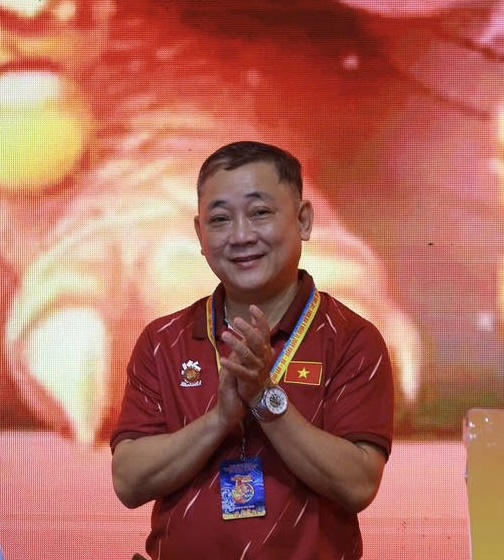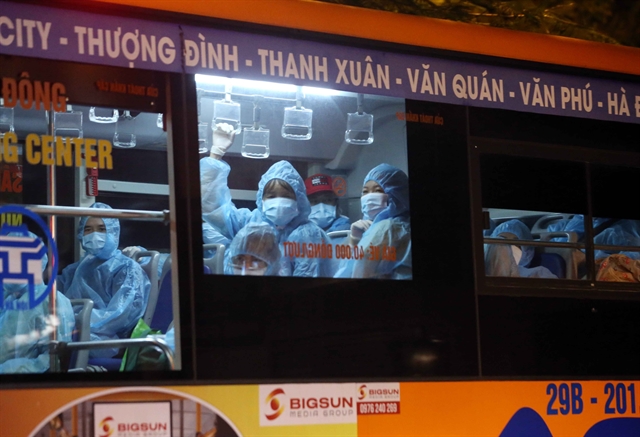 Society
Society


|
| People in close contact with COVID-19 patients at the Việt Nam-Germany Friendship Hospital were taken to quarantine on Saturday night. — VNA/VNS Photo Phạm Kiên |
HÀ NỘI — Authorities in Hà Nội will tighten the management of hospitals under a request by the municipal deputy chairman Chử Xuân Dũng.
He made the instruction at an online meeting of the Hà Nội Steering Committee for COVID-19 Prevention and Control on Saturday afternoon.
The Hà Nội Department of Health on Saturday night took more than 150 people who were in close contact with COVID-19 patients, or often called F1, at the Việt Nam-Germany Friendship Hospital to a quarantine centre at the Hà Nội University of Physical Education and Sports in Chương Mỹ District.
Director of the department Trần Thị Nhị Hà said that the department proposed the municipal steering committee and the Ministry of Health to set up a plan for collective quarantine for more than 1,100 relatives of COVID-19 patients.
At present, the hospital does not receive patients for regular treatment, and receives emergency cases only.
Phạm Tuấn Long, chairman of the Hoàn Kiếm District People’s Committee, said that after discovering new COVID-19 cases at the hospital, the D apartment was locked down and sprayed with disinfectant.
More than 7,200 people related to the new cases were tested including medical workers, caregivers of patients at the hospital and residents around the hospital.
Deputy director of the Hà Nội Department of Health Vũ Cao Cương said that by Saturday, 28 COVID-19 cases were reported related to the hospital. Twenty-two of them are in Hà Nội whereas six others are from different provinces.
Public transport
At the online meeting, a spokesperson of the Hà Nội Department of Transport proposed not to allow public transport to re-open yet. The department will study the development of the pandemic before gradually opening services, to ensure both pandemic prevention, residents’ travel needs and transport for workers.
A representative of the Hà Nội Police said that the police still maintained more than 50 checkpoints to inspect people coming in and out the capital city. Officers are to patrol crowded areas and businesses.
Latent risks
Deputy chairman Dũng said that Hà Nội still faced latent risks of the pandemic due to different reasons, including latent sources in the community, unawareness of some residents and management organisations and the weather.
Dũng affirmed that pandemic prevention and control work must be implemented at the highest level together with strict punishments for violators.
He asked districts and departments to continue actively managing localities, as well as raise awareness among people and businesses. More inspections should take place at industrial zones and workers should be tested regularly. Plans for mobile medical stations at industrial zones should also be considered. — VNS